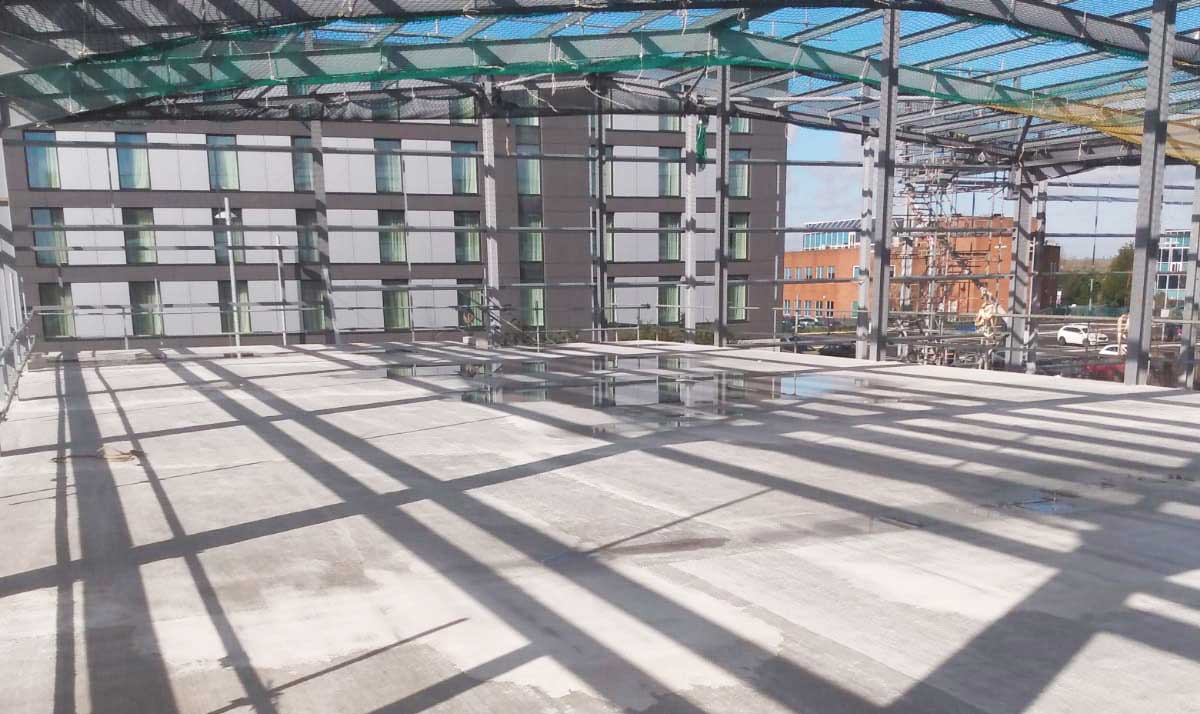Why Composites are Revolutionizing Construction Materials
Why Composites are Revolutionizing Construction Materials
Blog Article
Unlocking the Ecological Benefits of Recycled Composites in Building And Construction and Style
In the realm of building and layout, the usage of recycled compounds holds significant pledge for boosting sustainability methods and lowering environmental effect. The change in the direction of a more sustainable future in these markets hinges on opening the full capacity of recycled composites.

Environmental Effect Reduction
The reduction of environmental impact via the usage of recycled compounds in construction and style plays a vital function in sustainable techniques. By integrating recycled composites right into building products, the building and construction industry can significantly lower its carbon impact and contribute to a more eco-friendly future. These lasting materials, made from repurposed plastics, wood fibers, or other recycled components, use a sensible choice to conventional construction products without compromising on high quality or toughness.
Recycled composites aid draw away waste from landfills and reduce the demand for removing raw products, hence conserving all-natural resources. Furthermore, the manufacturing process of these compounds typically eats less power and releases less greenhouse gases compared to generating virgin products (composites). This shift in the direction of using recycled composites not just minimizes environmental injury but likewise advertises a circular economic climate by urging the reuse of materials that would certainly or else be disposed of
Waste Reduction
With a concentrate on reducing waste in building and construction and design, the combination of recycled compounds supplies a sustainable option to reduce environmental influence. Waste reduction is a vital facet of lasting practices, and using recycled compounds offers a chance to achieve this goal successfully. By utilizing materials that have currently offered their first purpose, such as recycled plastics or reclaimed timber fibers, the construction and style sectors can considerably reduce the quantity of waste created and sent to garbage dumps.
Recycled compounds have the prospective to draw away substantial amounts of waste from typical disposal methods, adding to an extra circular economy where sources are utilized effectively. Furthermore, the production process of recycled composites typically eats much less energy and creates less exhausts contrasted to virgin products, further reducing the environmental footprint of building and construction and design projects.
Executing waste minimization techniques via the unification of recycled compounds not only helps in conserving natural deposits however also advertises a much more sustainable approach to structure and making for a greener future.
Power Conservation
Incorporating recycled compounds not only minimizes waste in construction and layout however also plays an important role in boosting energy conservation techniques within the industry. Using recycled compounds in building can dramatically add to power conservation via various means. The manufacturing of virgin products usually requires considerable power inputs, whereas utilizing recycled compounds consumes less power, thereby minimizing overall energy intake. Additionally, integrating recycled compounds can add to much better insulation homes in structures, decreasing the requirement for excessive heating or air conditioning, and subsequently reducing power use for environment more control. Additionally, the light-weight nature of many recycled compounds can lead to lighter frameworks, requiring less power for transportation and setup. By advertising using recycled composites in building and construction and design, the market can make substantial strides towards accomplishing power efficiency and lowering its carbon impact, ultimately contributing to an extra lasting constructed setting.
Carbon Footprint Reduction
Enhancing sustainability techniques via the use of recycled composites in construction and layout dramatically minimizes the carbon footprint of the sector. By including recycled materials into the manufacturing of compounds, the demand for virgin resources decreases, bring about reduced energy intake and greenhouse gas discharges associated with typical manufacturing processes. This decrease in carbon footprint is critical in combating environment change and advertising a much more eco-friendly approach to building and construction and style.
Furthermore, making use of recycled compounds also aids in drawing away waste from landfills, thereby alleviating the environmental effect of disposal and promoting a round economy. The carbon impact reduction attained with the adoption of recycled composites straightens with the international push in the direction of sustainable methods and the reduction of commercial emissions. It showcases a dedication to responsible source administration and a shift in the direction of greener options in the building and style industries. Inevitably, by prioritizing the assimilation of recycled composites, the sector can make significant strides in decreasing its carbon footprint and adding to a more lasting future.
Sustainable Future
The combination of recycled composites in building and construction and style not only addresses prompt environmental concerns but additionally lays a solid foundation for a lasting future in the market. By incorporating recycled compounds right into building materials and items, the construction and layout industries can considerably minimize their reliance on virgin sources, leading to an extra circular economic climate. This shift towards sustainability is crucial for alleviating the ecological influence of conventional building and construction practices, which typically cause high levels of waste generation and resource exhaustion.

Verdict
Finally, recycled compounds use considerable environmental advantages in building and design by decreasing environmental impact, decreasing waste, preserving power, reducing carbon footprint, and promoting a lasting future. Accepting using recycled composites can add to an extra environmentally-friendly technique to building and design, inevitably leading to an extra lasting and greener future for all.
The decrease of ecological impact through the usage of recycled compounds in construction and layout plays an important role in lasting techniques.With an emphasis on reducing waste in construction and design, the integration of recycled compounds uses a sustainable option to decrease environmental impact. By advertising the usage of recycled compounds in building and construction and style, the industry can make significant strides in the direction of accomplishing power effectiveness and decreasing its carbon impact, ultimately adding to a more sustainable constructed environment.

Report this page